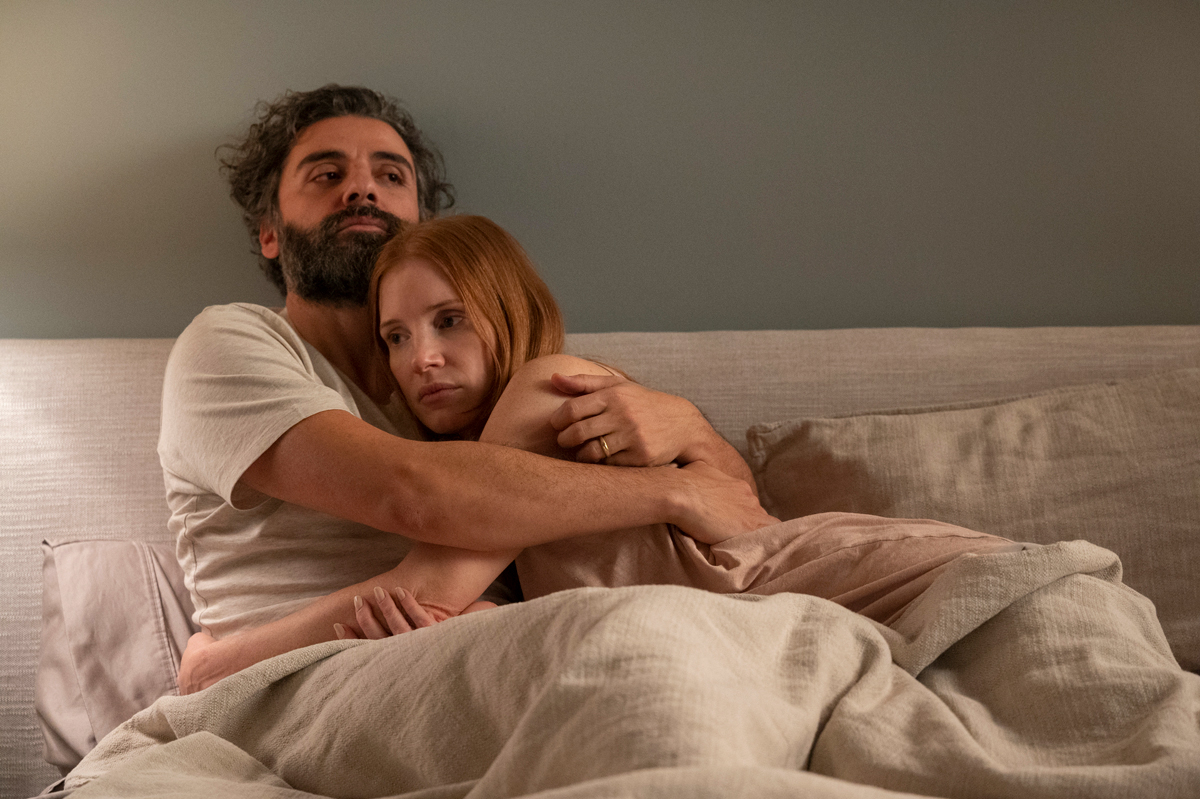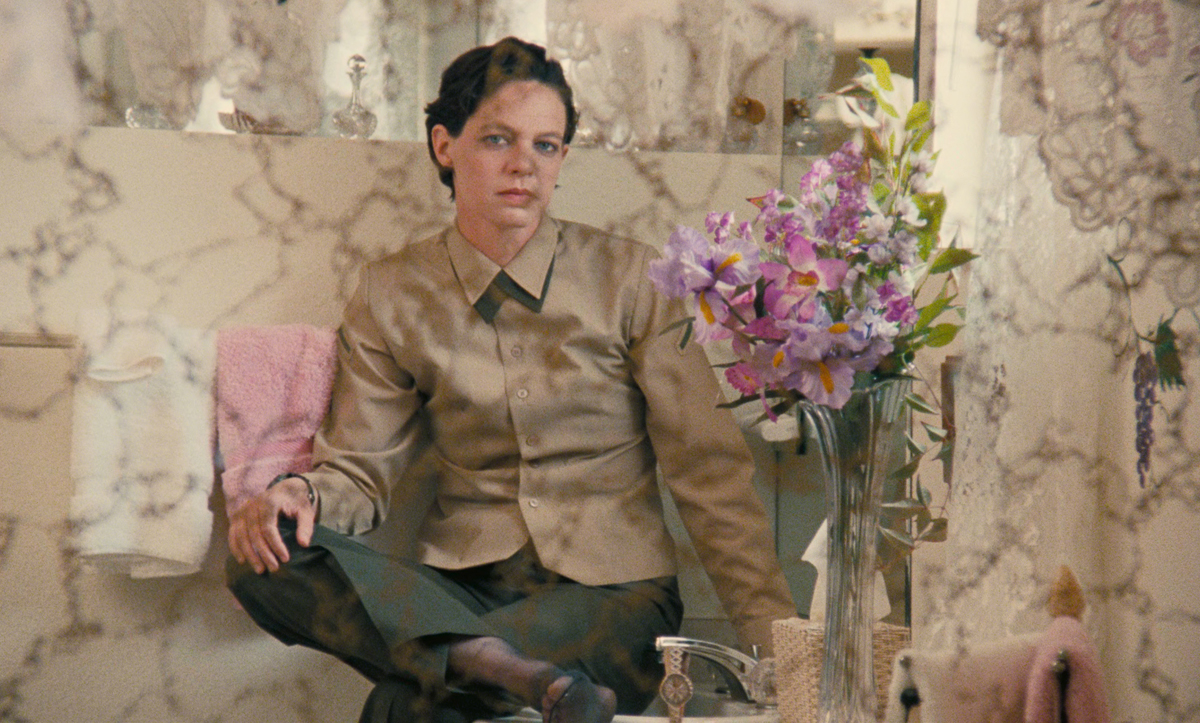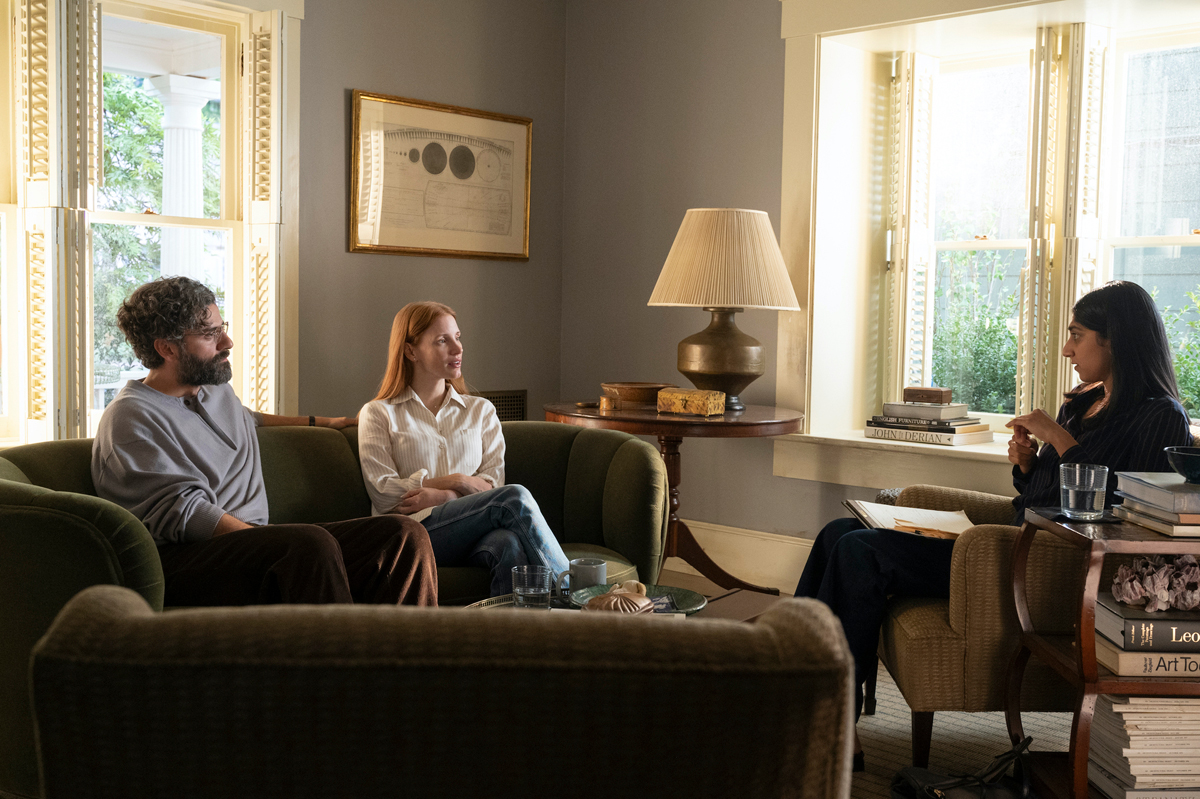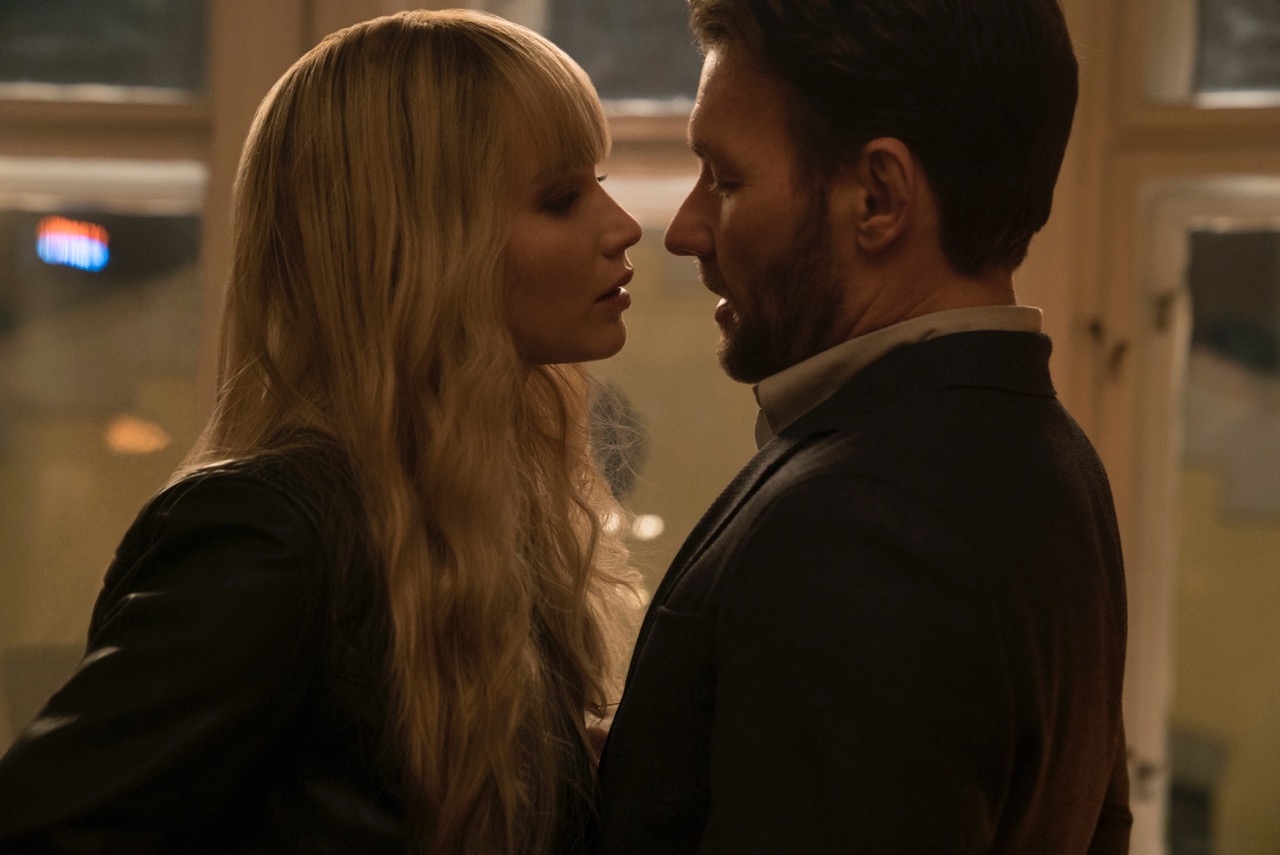 4 Columns
4 Columns
4Columns returns with a new issue on September 2. Our first summer missive: heterosexuality gets two thumbs down.

Oscar Isaac as Jonathan and Jessica Chastain as Mira in Scenes From a Marriage, episode 1. Photo: Jojo Whilden / HBO.
The incomparable gay film critic Boyd McDonald, who died in 1993, once waggishly referred to the “post-heterosexual era” in one of his ribald dispatches. However outlandish his claim may have seemed then, certain films and television series strongly suggest that we are deep into this epoch—that heterosexuality is definitely in crisis.

Tinka Menkes in The Bloody Child. Courtesy Arbelos Films.
In her key works from the 1980s and ’90s, the indispensable American independent filmmaker Nina Menkes lays bare the fraught dynamic between men and women. Writing about a retrospective devoted to the director, Erika Balsom calls attention to Menkes’s third feature, The Bloody Child (1996), which was “inspired by the true story of a Gulf War veteran in Twentynine Palms who killed his pregnant wife and was found by fellow marines while digging her grave.” Menkes deploys oblique strategies to portray a baleful reality, Balsom observes: “Dispensing with chronology and embracing the hallucinatory potential of repetition, Menkes cycles through a series of moments surrounding an unrepresented death. Out of what feels like a frozen present, she carves a crystalline hell within which to anatomize the murderous boredom and routine aggression of both heterosexuality and the military.”

Oscar Isaac as Jonathan, Jessica Chastain as Mira, and Sunita Mani as Danielle in Scenes From a Marriage, episode 1. Photo: Jojo Whilden / HBO.
But this hetero-pessimism isn’t solely the province of experimental cinema. In his review of the HBO-produced, Hagai Levi–directed remake of Ingmar Bergman’s lacerating 1973 miniseries Scenes from a Marriage, Leo Goldsmith notes that in the near-forty years since the original, viewers have grown increasingly obsessed with the miseries of straight coupling. “Some will question the relevance, in 2021, of a retread of what is surely Bergman’s magnum opus of the insanity born of being straight, white, and married,” Goldsmith writes. “But Levi’s version arrives in a world of couples therapy and relationship podcasts and Esther Perel TED Talks—a world with its own evasions and repressions, but one quite unlike Sweden in the 1970s. Torturous self-examination isn’t just art cinema fodder any longer; it’s a huge industry. In short, we love this stuff.”

Jennifer Lawrence as Dominika and Joel Edgerton as Nate in Red Sparrow. TM & © 2018 Twentieth Century Fox Film Corporation. Photo: Murray Close.
Even big-budgeted studio films occasionally advance an anti-heterosexual agenda, if only by accident. The glum spy thriller Red Sparrow (2018) stars Jennifer Lawrence as Dominika, a former Russian ballerina now learning the finer points of espionage at a school overseen by a character known only as “Matron,” played by Charlotte Rampling. Specifically, the erstwhile Bolshoi star is instructed “how to seduce—and compromise—the enemy,” as 4Columns film editor Melissa Anderson writes. On assignment in Hungary, Dominika meets and falls in love with Joel Edgerton’s CIA operative. Or does she? “Watching the two engage in some countertop rutting, I thought of another of Matron’s directives: ‘You must inure yourself to what you find repellent,’ ” Anderson observes. “Red Sparrow, a joyless genre exercise, inadvertently advances the premise that most, maybe all male-female mating could be thought of as a ruse, the basest kind of transaction, the bleakest form of pleasure.” We await a new critic-soothsayer to help us imagine the post-post-heterosexual era.